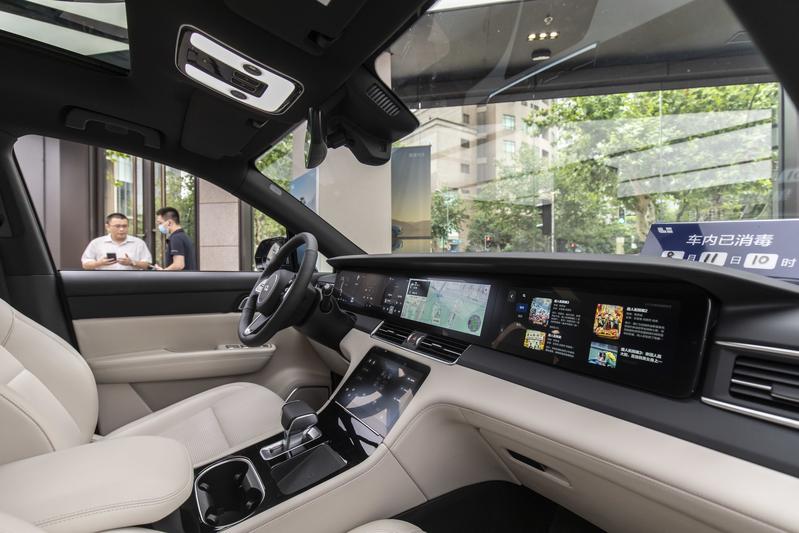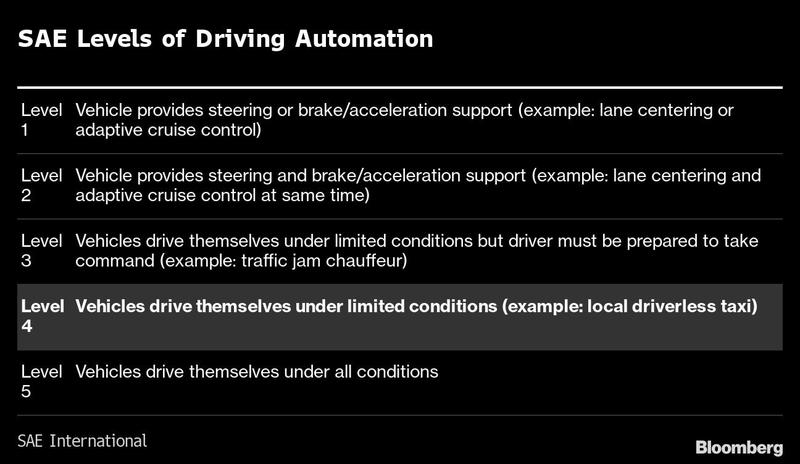 This file photo shows the dashboard inside a Li One electric sport utility vehicle (SUV) on display at a Li Auto Inc. showroom in Shanghai, China, on Aug 11, 2021. (PHOTO / BLOOMBERG)
This file photo shows the dashboard inside a Li One electric sport utility vehicle (SUV) on display at a Li Auto Inc. showroom in Shanghai, China, on Aug 11, 2021. (PHOTO / BLOOMBERG)
The Chief Executive Officer of Chinese electric-car maker Li Auto Inc has said the industry should limit using the terms autonomous and self driving, considering no automobile today is truly capable of that and its common usage is becoming misleading for consumers.
Li Xiang’s comments, on his WeChat account Monday, come days after a fatal accident involving an electric car from rival Nio Inc. The 31-year-old driver of that vehicle had Nio’s navigation-on-pilot function activated and was killed when his car rear-ended another on a highway.
Li Auto Inc's CEO Li Xiang’s comments come days after a fatal accident involving an electric car from rival Nio Inc. The 31-year-old driver of that vehicle had Nio’s navigation-on-pilot function activated and was killed when his car rear-ended another on a highway
That and similar accidents in China have raised consumer concerns over the safety of electric cars, which tend to have more advanced driving technology and intelligent features than traditional cars. Some people say the way the vehicles are being advertised, including describing driver-assistance functions as autonomous driving, is potentially dangerous.
“The terms ‘autonomous’ and ‘assistance’ are conflicting each other in describing one single status,” Li said. Drivers are still ultimately responsible for their own safety even when using assisted-driving functions, he said.
ALSO READ: EV maker Nio's 100,000th vehicle rolls off production line
It’s an issue that’s sparked debate outside of China as well. Earlier this year, the US National Transportation Safety Board found that the Autopilot function could not have been in operation on a Tesla Inc Model S that crashed in Texas, killing the two occupants.
On Monday, the National Highway Traffic Safety Administration opened a formal investigation into Tesla’s Autopilot system after almost a dozen collisions at crash scenes involving first-responder vehicles.
Some people say the way the NEVs are being advertised, including describing driver-assistance functions as autonomous driving, is potentially dangerous
Advanced driver-assistance systems help drivers park, stay in their lane or avoid objects using cameras, radar and other electronic sensors, but a fully autonomous car that can drive everywhere, under all conditions is a long way off.
Even California-based Waymo, the business that was formerly Google’s autonomous car project, no longer uses the term self-driving to depict its technologies.
The Nio accident is under investigation and the company is “actively partnering with relevant departments and submitting materials,” according to a statement Monday.

READ MORE: Nio charges ahead towards battery swap service
Li also urged media and industry bodies to adopt unified Chinese nomenclature for assisted and autonomous driving technologies to replace the Level 2 to 5 scale that’s generally used to reflect to what degree a machine takes over.
This would make things more “simple and clear,” Li said. “The hyperbole in marketing should be avoided.”



